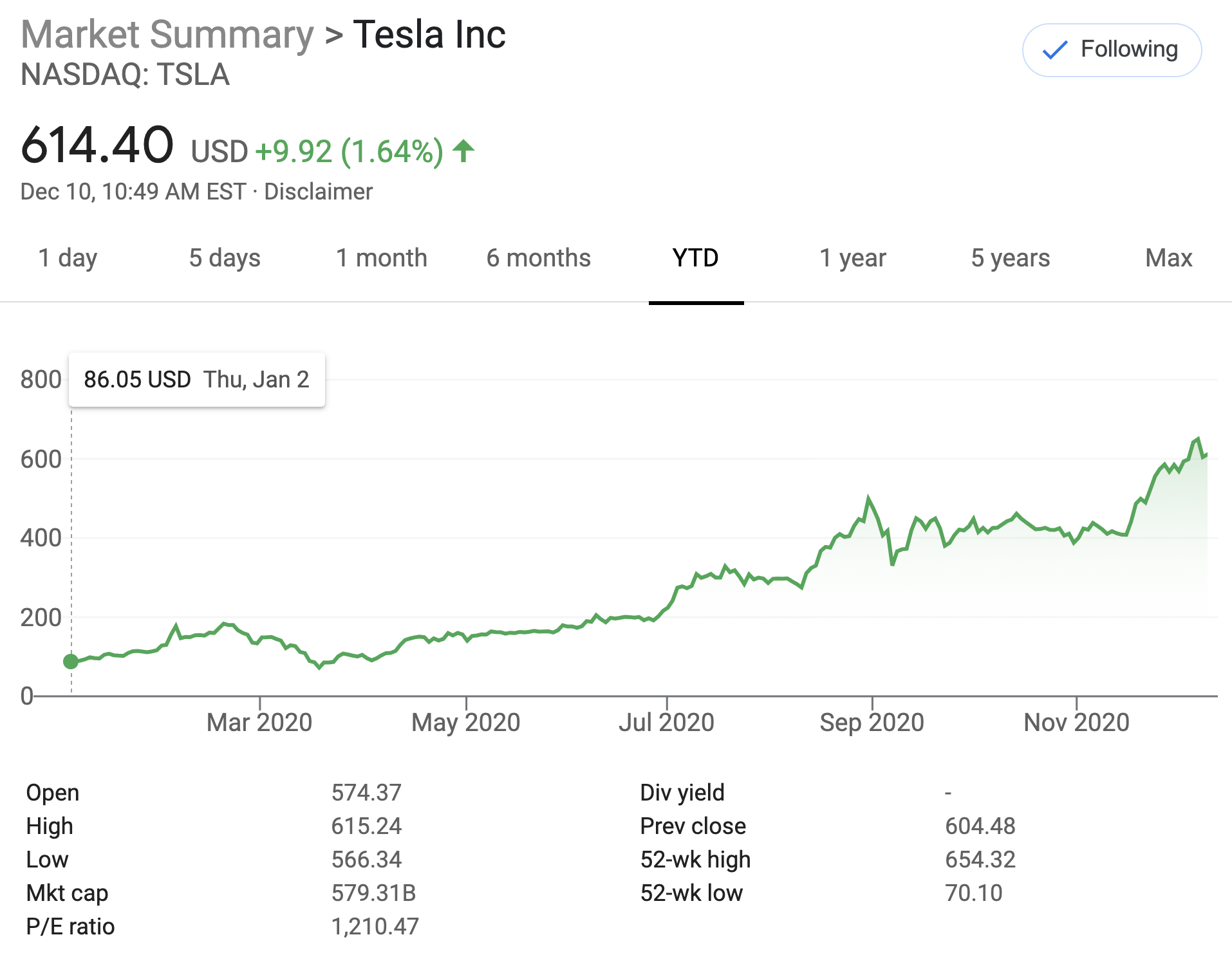December 10th, 2020 by Johnna Crider
In case you haven’t been following along, Tesla [NASDAQ: TSLA] has had a superb year on the stock market. That means that people who bet against the stock (short sellers) have had a horrible year. CNN has called Tesla’s incredible year a bloodbath for those who short the company’s stock. An analysis by S3 Partners showed that Tesla shorts have lost a total of $35 billion on their positions. And 2020 isn’t over yet.
Ihor Dusaniwsky, the managing director at S3 and an expert at shorting stocks, told CNN, “There’s nothing that compares to it that I can remember.”
To put it in a bit more perspective, to show how severe this loss is, note that the U.S. airline industry posted combined net losses of $24.2 billion in the first 9 months of 2020. For the U.S. airline industry, 2020 was the hardest year in history, with the worst losses the industry has ever reported.
Just last month, Tesla short sellers — including those on Twitter using the hashtags $TSLAQ and even $ElonQ (“Q” stands for bankrupt) — lost $8.5 billion, more than the $6.7 billion that Tesla “lost” in the 11 years from when it first reported results in 2008 to 2019.
While the CNN article touched upon Elon’s hatred of the shorts, it didn’t mention all the misinformation campaigns, the FUD, or the insane actions of some anonymous short sellers on Twitter who often do stupid things — from stalking Tesla owners and harassing them (as in the case of Omar Qazi) to spreading lies about Elon Musk and targeting his family with offensive and vicious claims or attacks on Twitter.
This Has Been Going On A Long Time … And Still Is
When you lose money continuously, the smart thing to do is to stop wasting it. However, like a gambling addict, short sellers are still putting their money on the line in hopes of winning the elusive prize — the failure of Elon Musk.
Jim Chanos, president at Kynikos Associates, shared his thoughts on Tesla during Barron’s Executive Briefing on Investing and Money. “However you might want to dream about autonomous taxis, spaceflight, tunnels underground, whatever — they are a car company, and they are an unprofitable car company,” he said.
Chanos’ first apparent mistake is confusing SpaceX with Tesla. His second one is confusing The Boring Company with Tesla. His third is claiming that Tesla isn’t profitable — it has been profitable for 5 consecutive quarters and is being included in the S&P 500 on the shortest day of the year, the Winter Solstice. His fourth mistake is refusing to see Tesla as a tech company — he has made comments before regarding this.
Chanos echoes the thoughts that many anonymous critics (presumably short sellers) share on Twitter every day — fear, uncertainty, and doubt (FUD). However, his focus on including SpaceX and The Boring Company as part of his reason for not liking Tesla shows the real reason why he doesn’t like what he mistakenly called a car company. By wording that just so, Chanos revealed that it is Elon Musk, not Tesla, that he doesn’t like. And by allowing his emotions to dictate how he should invest, Chanos and his fellow short sellers lost billions of dollars this year.
Fueled By Animosity, They Continue To Bet Against Elon Musk
Back in October, I interviewed Ross Gerber, CEO of Gerber Kawasaki, and Ross shared with me his take on the mindset of the analysts covering Tesla.
He pointed out that the analysts are skeptical of Elon and are skeptical of technology, so their approach to Tesla is thinking that everything is false. So they look for the proof that validates their skepticism, and in many cases often find their “proof,” temporarily and out of context. It’s like the Jesus on toast thing — when you want to see his face everywhere, you do.
“So many investors have missed Tesla who just wanted to come up with reasons not to believe. In fact, most of these analysts just have a personal thing against Elon and they color their understanding of things with their biases. This is a really important point where I bet on people, and I bet on the future. I think I know what I want the future to look like, and Elon is building a future that I see and it just makes sense to me. But I felt like it doesn’t make sense to analysts because they don’t sit in their room thinking about the future. They are looking at financial statements from last year.”
Final Thoughts
As someone who invests in Tesla, my thoughts are simple and direct. Before you choose to invest in a stock, research it fully, and not just its financials. Look at the company’s goals and see whether or not they are achieving their goals. If they are, how? What’s their plan for the future and how are they solving problems that matter to not just you, but to their customers?
This, of course, isn’t financial advice, but it is common sense. Also, it may not be smart to short a company because “Elon bad.”
Appreciate CleanTechnica’s originality? Consider becoming a CleanTechnica member, supporter, or ambassador — or a patron on Patreon.
Sign up for our free daily newsletter or weekly newsletter to never miss a story.
Have a tip for CleanTechnica, want to advertise, or want to suggest a guest for our CleanTech Talk podcast? Contact us here.

